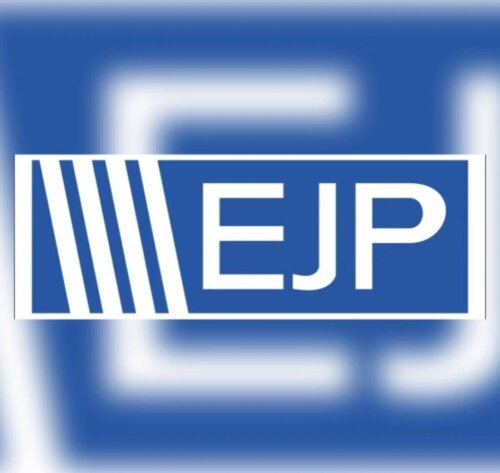Best Sanctions & Export Controls Lawyers in Mar del Plata
Share your needs with us, get contacted by law firms.
Free. Takes 2 min.
List of the best lawyers in Mar del Plata, Argentina
1. About Sanctions & Export Controls Law in Mar del Plata, Argentina
Mar del Plata is a major port city in Buenos Aires Province, and its businesses increasingly engage in cross border trade and technology transfers. In Argentina, Sanctions and Export Controls are national, not local, matters. The regulatory framework is administered by federal authorities such as the Dirección General de Aduanas (DGA) within AFIP and the Secretaría de Comercio Exterior under the Ministry of Desarrollo Productivo. Compliance is essential for exporters, importers, shipyards, and technology providers operating from Mar del Plata or shipping through its port.
National sanctions regimes align with United Nations, U S. government programs, and regional practices. Local enforcement follows procedures for licensing, screening, and penalties for violations. A Mar del Plata business can face significant fines, seizure of goods, or criminal exposure for export control breaches. Understanding who administers the rules and how to obtain necessary authorizations reduces risk and protects ongoing operations.
Direccion General de Aduanas (AFIP DGA) and Secretaría de Comercio Exterior provide the core guidance for export licensing, screening, and sanctions compliance in Argentina. You should consult these sources early in planning, especially for Mar del Plata exporters and importers. For broader context, see international guidance from OFAC and the UN sanctions pages linked in the Resources section below.
2. Why You May Need a Lawyer
- A Mar del Plata fishing enterprise plans to export seafood to partners in the European Union and must determine if the shipments require an export license or special authorization due to dual use components or end use restrictions.
- A local manufacturer considers exporting electronics with potential dual use features and needs a compliance program to meet Argentine control lists and licensing requirements.
- Your company received a compliance notice from AFIP DGA alleging misdeclared goods or inaccurate tariff classifications during port clearance in a Mar del Plata shipment.
- A supplier or counterparty in Argentina is flagged for sanctions risk and you need to assess exposure, identify red flags, and implement risk mitigation measures.
- You want to engage a foreign collaborator and need to structure the deal to satisfy end user verification, export licensing, and anti sanctioned party screening requirements.
- You face a licensing denial, suspension, or revocation in relation to a Mar del Plata export and require a formal appeal or administrative remedy strategy.
In these situations, a solicitor or attorney specializing in sanctions and export controls can map the licensing path, gather required documents, and represent you in communications with AFIP DGA and other authorities. A local expert can also help you implement ongoing compliance programs to avoid repeat issues in Mar del Plata port operations.
3. Local Laws Overview
Argentina relies on federal law to regulate exports, sanctions, and related controls. The core framework anchors on the customs regime and licensing requirements administered by the national authorities. The following instruments are commonly referenced in practice by Mar del Plata businesses and their legal counsel:
- Código Aduanero de la Nación - Ley 22.415 - The central legal instrument governing customs, export licensing, classifications, and sanctions enforcement. It provides the basis for how goods move across borders and how authorities screen transactions at ports, including Mar del Plata. This code is interpreted and applied through AFIP DGA regulations and resolutions.
- Reglamento de la Ley de Aduanas - The regulatory framework implementing the Código Aduanero. It sets out procedures for export clearance, licensing requirements for controlled items, and penalties for violations. It is updated periodically by AFIP as needs arise, including changes that affect port operations in Mar del Plata.
- Resoluciones Generales de la Dirección General de Aduanas (DGA) - Administrative rules that detail licensing procedures, screening steps, and compliance timelines. These resolutions guide day to day import and export activity through Mar del Plata and other ports.
Recent updates in Argentina's export controls have focused on tightening licensing procedures, improving end user verification, and enhancing enforcement against misclassification and under declaration. To understand current requirements, review AFIP DGA publications and consult a lawyer who tracks changes month to month.
For international reference, you can review guidance from official sources such as the U S Treasury Office of Foreign Assets Control (OFAC) and UN sanctions pages. These provide context on how Argentina aligns with global sanctions programs and where local enforcement may interact with foreign restrictions.
4. Frequently Asked Questions
What is export control in Argentina and why does it matter?
Export control refers to government measures that govern how goods, software and technology leave the country. It matters because violations can lead to fines, seizure of goods, or criminal penalties.
What is a sanctions program and how could it affect my Mar del Plata business?
Sanctions programs restrict dealings with designated individuals, entities, or countries. They can affect payments, shipping, and licensing, creating risk for suppliers and buyers.
What is the difference between an export license and an export permit?
An export license authorizes a specific export under the rules; a permit is a narrower authorization for particular products or destinations. Both require official review.
How do I know if my product requires an export license in Argentina?
It depends on the product's classification, destination, and end use. The DGA and AFIP provide classification guides and licensing criteria that you must follow.
Where can I find official guidance on export controls for Mar del Plata shipments?
AFIP DGA and the Secretaría de Comercio Exterior publish licensing rules, procedural steps, and screening guidance relevant to port operations.
Why should I hire a Sanctions & Export Controls lawyer rather than handling this myself?
A lawyer can identify licensing requirements, prepare necessary documentation, respond to notices, and represent you in administrative proceedings. This reduces risk and delays.
Do I need a lawyer to respond to a DGA inquiry or notice?
Not always, but having counsel ensures responses are complete, timely, and technically correct, which minimizes penalties and preserves options for appeal.
Can I represent my company in export control matters in Mar del Plata without local counsel?
You can, but local counsel improves understanding of port specific procedures and practical timelines at Mar del Plata’s facilities.
Is there a timeline for getting an export license approved in Argentina?
Processing times vary by product type, license category, and current workload. A lawyer can provide realistic timelines based on your case.
How much can penalties for export control violations cost in Argentina?
Penalties may include fines, seizure of goods, or criminal charges. The amount depends on the violation type and severity, and can be substantial.
What documents should I prepare before meeting a lawyer about export controls?
Prepare business licenses, vendor and customer details, product schedules, HS codes, end use statements, and any prior correspondences with AFIP DGA.
What is the process to appeal an export license denial in Argentina?
A lawyer can guide you through administrative appeals, required submissions, and whether to pursue judicial review in the civil courts.
Do local or international sanctions apply to Mar del Plata businesses?
Both can apply. Local licensing and enforcement operate within a global framework shaped by UN and other sanctions programs.
Should I implement a formal compliance program for sanctions and export controls?
Yes. A tailored program reduces risk, helps with audits, and improves efficiency in licensing and port clearance processes.
5. Additional Resources
- AFIP Direccion General de Aduanas (DGA) - Official source for export licensing, classification, and customs procedures. afip.gob.ar/dga
- Argentina Gobierno - Secretaria de Comercio Exterior - National guidance on export controls, licensing procedures, and international trade rules. argentina.gob.ar/produccion/comercio-exterior
- Office of Foreign Assets Control (OFAC) - U S Department of the Treasury - International sanctions programs and guidance that influence Argentina compliance practices. home.treasury.gov
6. Next Steps
- Map your needs and determine if Mar del Plata shipments will require licenses or sanctions screening. This should be done before signing suppliers or contracts.
- Gather key documents including product descriptions, classifications, end use statements, and current licenses or permits if any.
- Research local Sanctions & Export Controls lawyers with experience in AFIP DGA procedures and Mar del Plata port operations.
- Schedule a first consultation to review licensing requirements, timelines, and potential penalties. Ask for a written engagement letter and fee structure.
- Request a compliance assessment and, if appropriate, develop a tailored export controls program for your business model in Mar del Plata.
- Prepare a licensing plan with milestones and a decision tree for possible denial, approval, or appeal scenarios.
- Begin outreach to authorities with your lawyer present when needed and document all communications for audit trails.
Disclaimer: This guide is informational only and does not constitute legal advice. Export controls and sanctions are complex and change frequently. Consult a qualified lawyer in Mar del Plata for advice tailored to your business and circumstances.
Lawzana helps you find the best lawyers and law firms in Mar del Plata through a curated and pre-screened list of qualified legal professionals. Our platform offers rankings and detailed profiles of attorneys and law firms, allowing you to compare based on practice areas, including Sanctions & Export Controls, experience, and client feedback.
Each profile includes a description of the firm's areas of practice, client reviews, team members and partners, year of establishment, spoken languages, office locations, contact information, social media presence, and any published articles or resources. Most firms on our platform speak English and are experienced in both local and international legal matters.
Get a quote from top-rated law firms in Mar del Plata, Argentina — quickly, securely, and without unnecessary hassle.
Disclaimer:
The information provided on this page is for general informational purposes only and does not constitute legal advice. While we strive to ensure the accuracy and relevance of the content, legal information may change over time, and interpretations of the law can vary. You should always consult with a qualified legal professional for advice specific to your situation.
We disclaim all liability for actions taken or not taken based on the content of this page. If you believe any information is incorrect or outdated, please contact us, and we will review and update it where appropriate.









